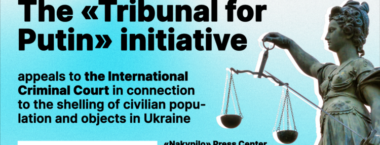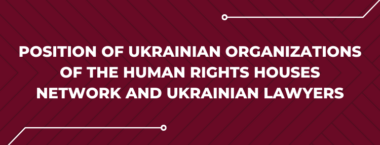On July 31, 2018, attacks on civil society activists took place – former ATO soldier Vitaliy Oleshko was killed in Berdyansk, and city council employee Kateryna Handzyuk had acid poured on her in Kherson. Oleksandr Pavlichenko, Director of the Ukrainian Helsinki Human Rights Union, comments on what happened to the victims.
Attacks on those called activists, those fighting against manifestations of corruption and unlawful actions on the part of authorities, are getting bolder.
We are seeing today that results of investigations into unlawful actions are not always adequate and, most importantly, there is no stop sign, no effective safeguard against those who do these things. These are unacceptable acts that border on or even constitute a criminal offense, because we are talking here about murder, beatings, and serious bodily harm. It is a disturbing and harmful trend that affects the public. Naturally, everyone pictures themselves in the place of the victims and thinks: “Should I continue this line of work and risk becoming a victim myself, turning into a potential target for these offenses? What incentives and safeguards can be introduced to prevent civic activism from getting weaker?”
It directly concerns activism in regions. The situation there is even more complicated and critical: most people know who’s against whom and who could be behind these acts, which are crimes essentially, perpetrated with the intent to intimidate, put a stop to certain activities, investigations or actions against possible corrupt practices at the local level. This is a problem.
Our organization is working with such incidents, providing legal support, carrying out legal activities, and analyzing each specific case. Unfortunately, we are observing an increasing frequency of such cases.
Again, this is a very negative trend for Ukraine, whose government continues to claim that we are moving toward European space with all its values, of which the most important are the rule of law, democracy and protection of human rights.
It is very important to make these issues a priority for Ukraine’s law enforcement. Law enforcement in its turn should suggest the safeguards, specifically in the form of proactive and rapid responses to these incidents. There should also be appropriate reactions to reports on alleged unlawful acts. Each of these cases should be properly investigated. Society must see that law enforcement is working to protect and strengthen civil society activism.
Oleksandr Pavlichenko, Executive Director of UHHRU



